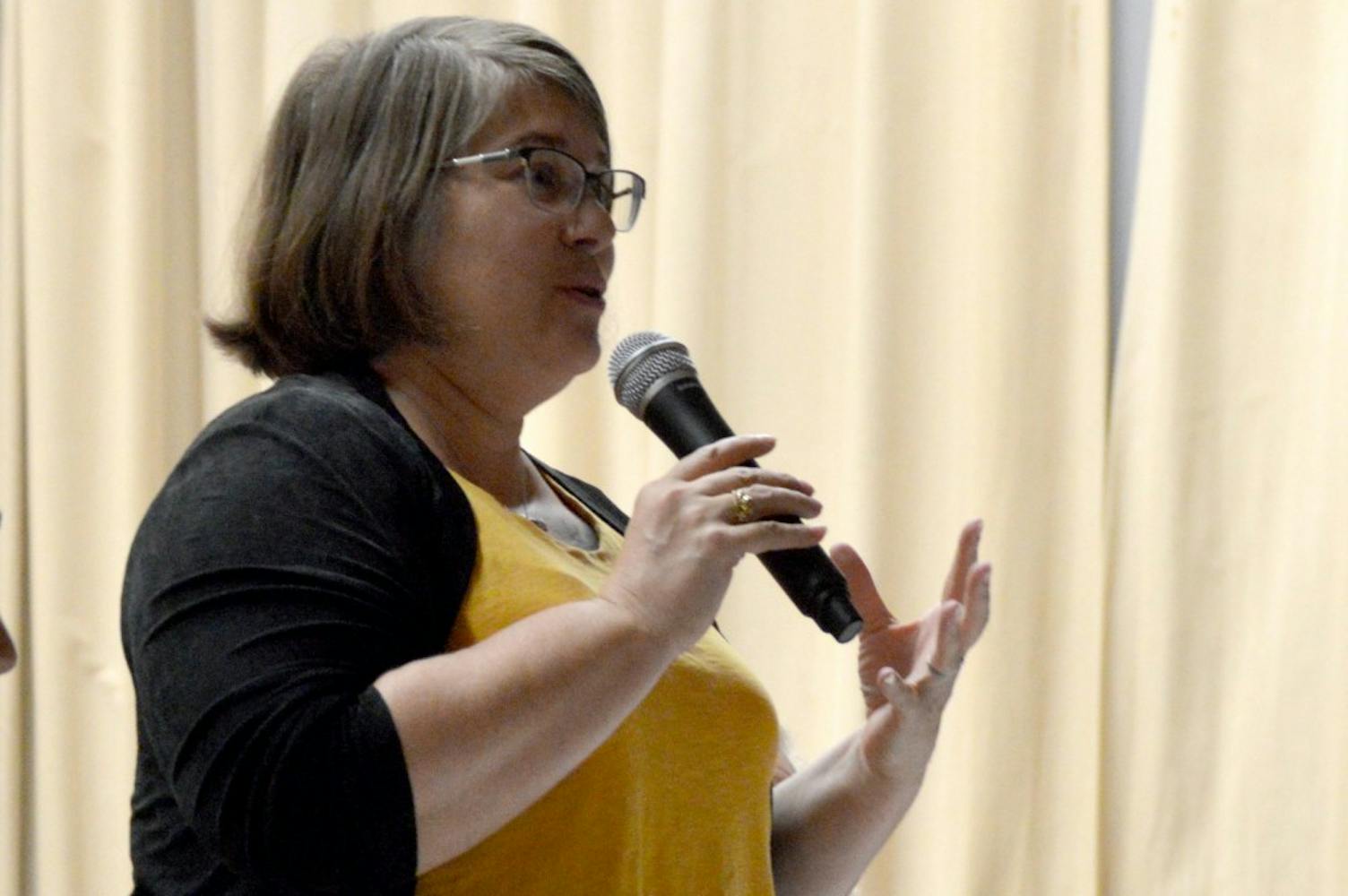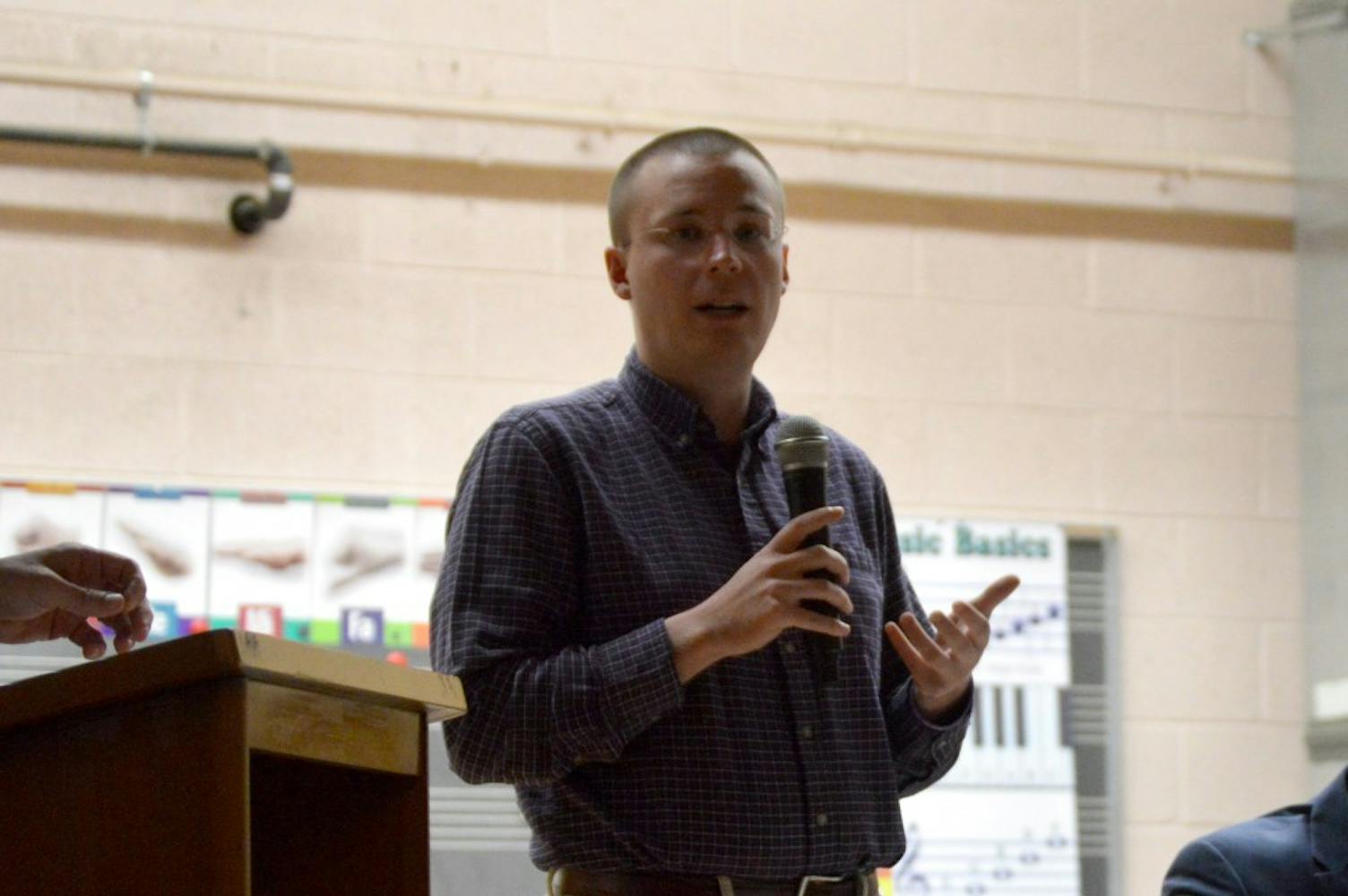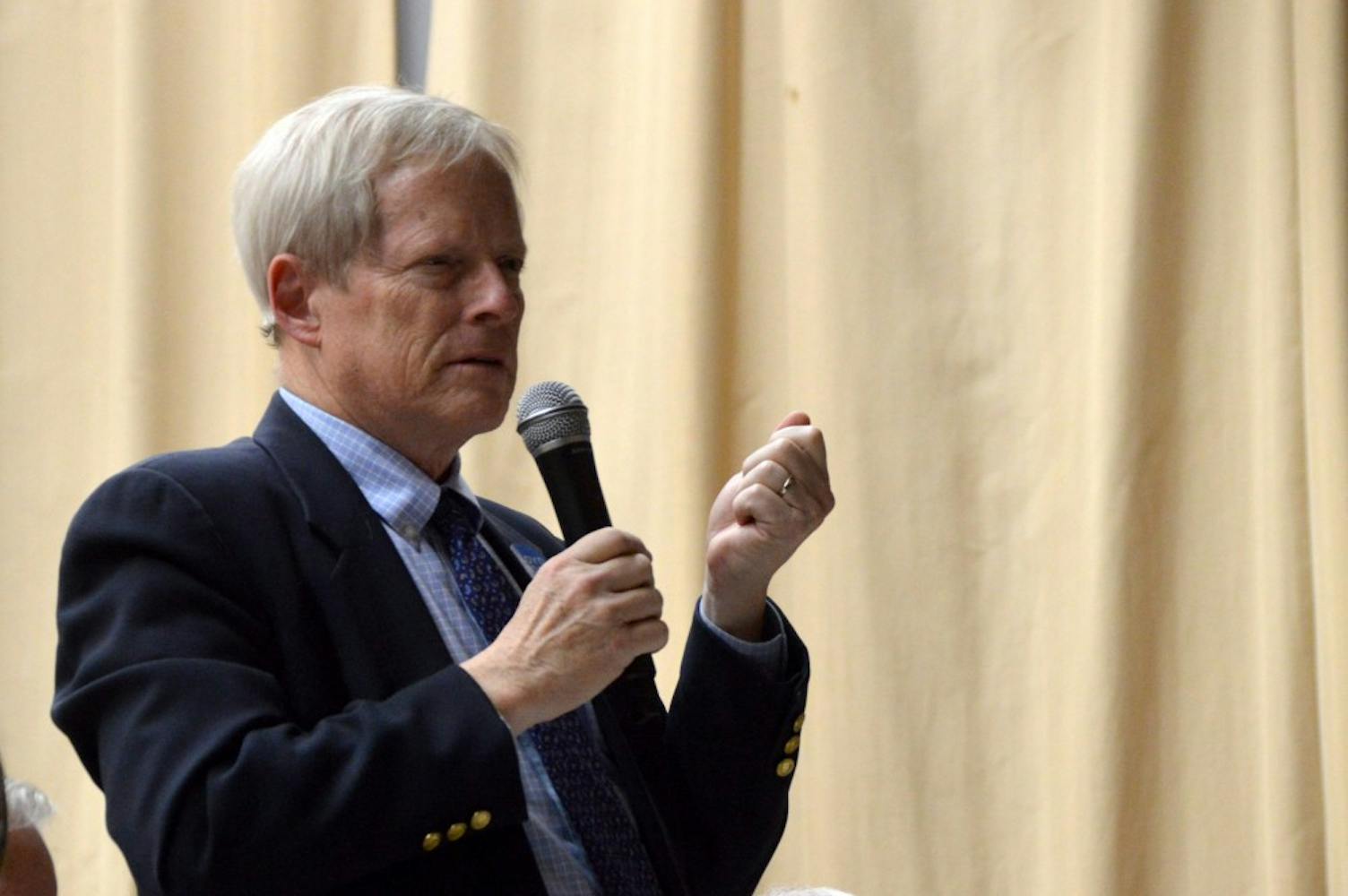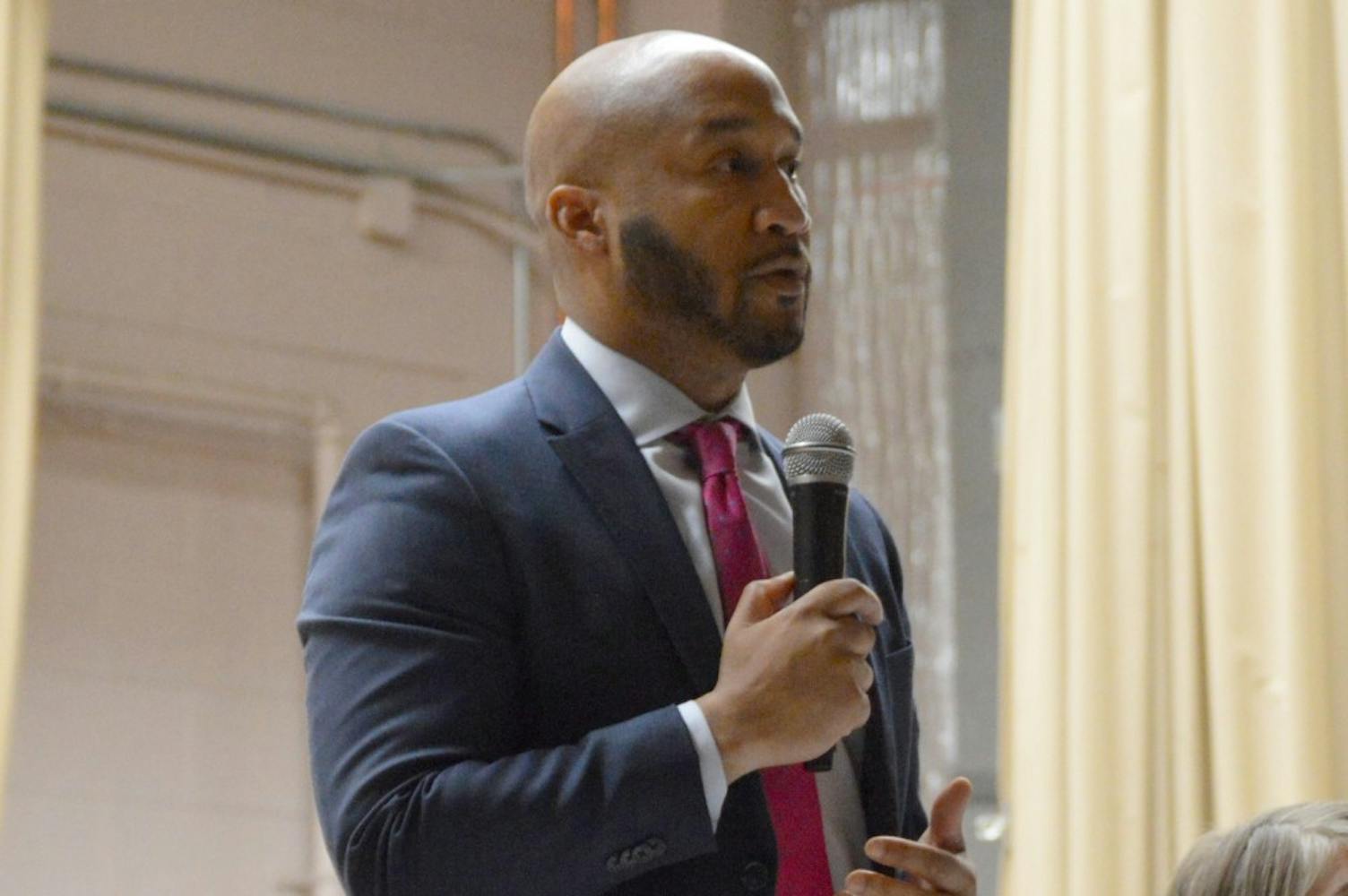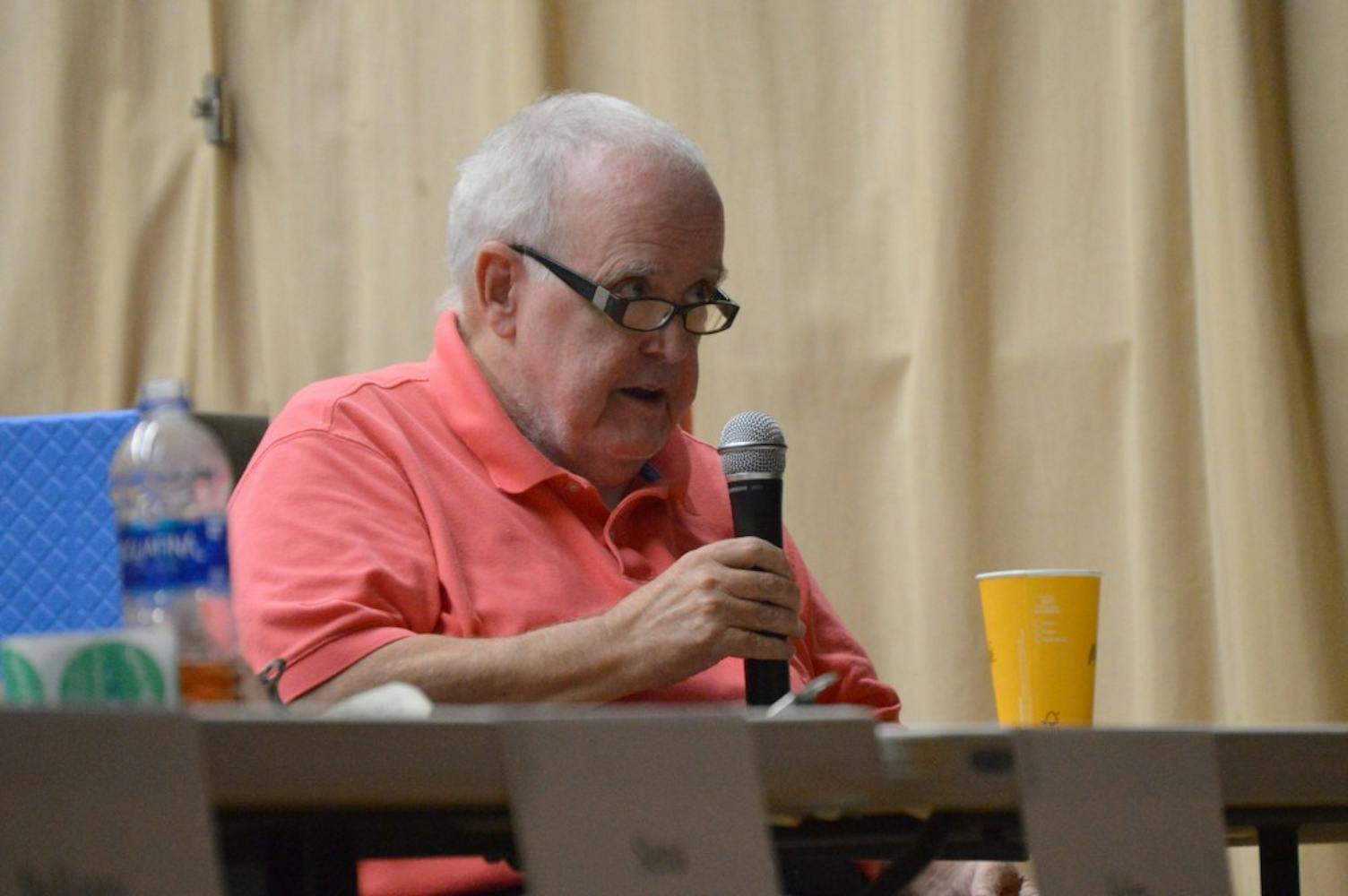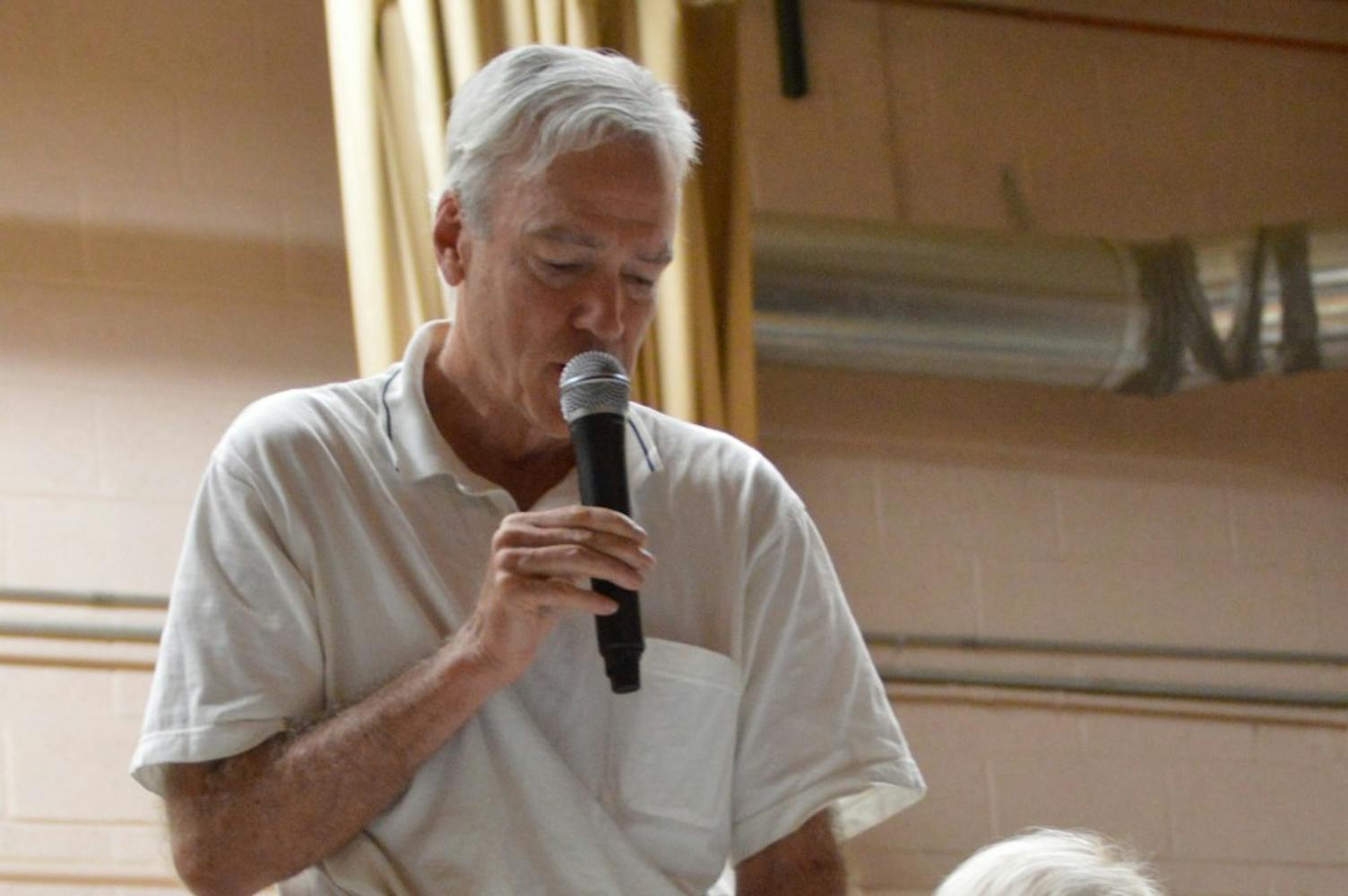With the Nov. 5 election less than three weeks away, six candidates are in the race for three open spots on the Charlottesville City Council.
Names on the Democratic ticket include Sena Magill, Michael Payne and Lloyd Snook. The three are taking on three other Independent candidates — Bellamy Brown, Paul Long and John Edward Hall.
Incumbent Democratic councilors Wes Bellamy, Kathy Galvin and Mike Signer declined to run for another four-year term. Mayor Nikuyah Walker and Vice Mayor Heather Hill, the other two incumbent councilors, are currently serving terms that will expire Dec. 2021.
To understand each candidate’s platform, The Cavalier Daily interviewed the candidates about their policy ideas, their thoughts on the University’s relationship to Charlottesville and how they think students play a role in local government.
Sena Magill
A Charlottesville resident since she was six years old, Magill initially planned to run for City Council when her now elementary-school-age daughter completed high school. After the deadly Unite the Right rally attracted hundreds of white supremacists to Charlottesville in August 2017, Magill decided that she couldn’t wait another eight years.
“In August of 2017, Charlottesville kind of blew up, and my husband was hurt on August 11 and had his carotid artery torn, and then suffered a stroke later,” Magill said. “Also, my daughter and I were actually out of town, visiting family, and she had to watch her favorite after school teacher show up on TV, bleeding.”
Magill, who announced her run for council in January, outlined four of the most important issues for Charlottesville — affordable housing, transportation, climate change and racial equity. To tackle these issues, she hopes to focus on the City’s zoning code, making the incumbent council’s climate goals a reality, improving the current transit system, and recognizing and addressing unconscious racial biases through initiatives like the Police Civilian Review Board.
Despite these ambitions, Magill appreciates the incumbent council’s work, particularly in the arena of climate change. In July, the City committed to achieving carbon neutrality by 2050 — a plan considered to be one of the most ambitious in the state.
“The City has adopted an amazing, aggressive climate change goal, but now we actually have to work towards making that happen,” Magill said. “Now we need to really get the policy, the nuts and bolts, the actual ‘do’ to make that climate change goal an actual reality.”
She added that improving the mass transit system in and around the City would mitigate climate problems and the affordable housing crisis all at once. With improved mass transit, those who work in Charlottesville — but who don’t own a car — have expanded options for housing beyond City limits.
On the topic of the University’s relationship with Charlottesville, Magill — a University graduate — expressed optimism for the future.
“President Ryan, I really feel like he’s listening,” Magill said.
Although she noted that the University has a noticeable effect on the housing stock available in the City, Magill added that the University is a financial and intellectual asset for the City. She also encouraged students to get involved with local government, saying that something as simple as attending a City Council meeting can help a student engage and network with the community.
“Finding ways to go beyond the University walls and getting involved in local governments, getting involved in boards and commissions, getting involved in area nonprofits,” Magill said. “All of that looks really good on your resume, and it also starts engaging into the actual community itself.”
Michael Payne
Michael Payne sees running for City Council as an extension of his organizing work.
An organizer for Habitat for Humanity, the Charlottesville Low-Income Housing Coalition and co-founder of Indivisible Charlottesville, Payne’s roots are in advocating for affordable housing.
“Top priorities for me are one, affordable housing — which intersects with so many other issues in the City — two, local action on climate change; and three, the growing economic inequality and the racial wealth gap and racial disparities in the City,” Payne said.
To address escalating rents within City limits, Payne plans to spur reinvestment in and redevelopment of public housing, update the zoning code — which hasn’t been changed since 2003 — and complete the City’s affordable housing strategy. Like Magill, he sees an improved transit system as critical to mitigating climate change, alongside fossil fuel divestment and clean energy.
For Payne, the promotion of equitable growth and community wealth building can begin to address the City’s racial and economic inequality.
“When it comes to economic inequality, I think the City [should create] a plan for community wealth building and how we can use institutions like land trusts, community development corporations, co-ops, community gardens to … ensure the economic growth happening in town actually benefits everyone.” Payne said.
In reference to the University, Payne characterized its relationship to the City as historically checkered. He noted that the University has made steps towards bolstering town-gown relations through initiatives like the Community Working Group, but further progress will require additional action.
“Historically, I think there's definitely a divide between the University and the local community,” Payne said. “From the community, [there’s] a lack of trust about the University's intentions and the role that it's played in the Charlottesville community.”
To facilitate genuine collaboration with the City, Payne said the University should listen to Community Working Group’s recommendations, expand wages for contracted workers, pay taxes on its real estate within city limits and partner with the City on affordable housing initiatives — which could, for example, include requiring students to live on Grounds for more years.
Payne added that University students’ have a lot of power in the Charlottesville community, and not just in terms of voting. While students play a huge role in election outcomes — especially in an off-year election like this one — they can also, through community organizing, push the University towards progress.
“The reality is that the University often listens more to U.Va. students than to community members who have no connection to the University,” Payne said. “If the University community and the Charlottesville community are able to really come together … we can see things like the University divesting from fossil fuels and taking more action on housing.”
Lloyd Snook
Lloyd Snook announced his candidacy this January, motivated by the dysfunctionality he saw among the current Council members. He emphasized the problem of a severe lack of trust between counselors, pointing to the dysfunctionality of the Council retreat in December. He also pointed to the realization soon after that the City was having trouble holding onto staff.
However, Snook is still optimistic for the future efficacy of the Council.
Snook has lived in Charlottesville for 58 years and founded the law firm Snook & Haughey, P.C., in 1985. Snook has served as President of the Charlottesville-Albemarle Bar Association, Co-President of the Greenbrier Elementary School PTO, President of the Piedmont Housing Alliance and Chair of the Planning Commission for the City of Charlottesville.
Some of the issues he considers to be most pressing include affordable housing, the achievement gap in City schools and local action on climate change.
To address the achievement gap in City schools, he advocates for increased funding to the City of Promise and Boys and Girls Club programs.
With relation to action on climate change, Snook focused on divesting from fossil fuels, making changes to the transportation system and utilizing more solar panels, even in historic areas.
To address affordable housing, he plans to support improved transportation, changed zoning, redevelopment of current housing and more streamlined City regulations on auxiliary dwelling units — extra units such as a basement apartment or separate small house situated on low-density property.
“Those will tend to be affordable units and the more of those we can add the better off the marketplace will be,” Snook said. “In some cases, it will help seniors stay in their homes longer.”
When it comes to Snook’s perception of the relationship between Charlottesville and the University, he focused on the positive growth that has occurred.
“The major function of the University representatives [during the 1980s] was to say no,” Snook said. “Right now, I think we have from President Ryan an expression of a greater degree of willingness to compromise and to work together.”
Snook also expressed interest in student involvement in Charlottesville planning, alongside the involvement of the President and other University officials.
“[Planning] can be at the level of student council meeting with planning commissioners,” Snook said. “I think there’s a great opportunity for students who want to be activists and not merely show up once a year or so.”
Bellamy Brown
Another Charlottesville native, Bellamy Brown is running on a platform of restoring government integrity, respect and transparency, as well as tackling issues related to affordable housing, the city transit system and clean energy.
Brown’s specific goals for office are building collaborative relationships, tackling housing infrastructure issues and pushing for the creation of more recreational activities for children from low-income families. He also hopes to broaden economic opportunity in Charlottesville for all citizens through assisting employers in creating jobs.
A James Madison University alumnus and veteran of the United States Marine Corps, Brown has a background in politics and finance. He is one of three candidates running as an independent, citing this as an advantage for nonpartisan, honest governing.
“The first thing that I would do is just continue to build upon the collaborative mindset and relationships that I’ve built so here so far,” said Brown. “You have to have collaboration if you’re going to be able to get anything done.”
Brown was motivated to run for office in the wake of the Unite the Right Rally.
“We definitely have some race aspects (in Charlottesville) that we still have to continue to work through,” said Brown, the only nonwhite candidate in the race. “Really getting back to a space where we’re able to disagree with each other, but we’re not necessarily attacking each other.”
Brown also hopes to create better relations between the City and University.
“There’s obviously a dichotomy between the two worlds,” says Brown, who argues that University encroachment into the town is mostly due to lack of housing stock.
“But I think ... changing the dynamic between the University and the community is something that’s starting to take shape,” Brown said. “We’re in a space where we have great ground for building better relationships.”
Even for who students plan to stay in Charlottesville only temporarily, Brown stressed the importance of getting involved in local politics and getting out to vote.
“Local government matters because local government does have a significant aspect on the safety of the students around the community,” Brown said. “Even if you’re here for four years, you obviously will be concerned about student safety.”
Paul Long
The Cavalier Daily was unable to contact Paul Long for comment.
Long’s current campaign marks his fourth run for City Council. His name appeared on the ballot in 2009, 2011 and 2017, but Long has not yet served on the council. Frustrated by the current state of City Council, he decided to run yet again.
Main priorities for Long include transportation, the establishment of temporary homeless shelters and a restructuring of local government. Like other candidates, Long hopes to bring about an expanded regional public transportation system — a Regional Transit Authority that would include the City and Albemarle County as well as Fluvanna, Louisa, Green and Orange counties.
Long, who has lived in Charlottesville for 21 years, has also suggested the City seize the controversial Dewberry Hotel — an eleven-story, unfinished building on the Downtown Mall — via eminent domain. Other proposals include promoting rehabilitation over jail time for nonviolent drug offenders and using local funds for year-round homeless shelters.
John Hall
John Hall’s current campaign marks his second bid for council. In 2017, he placed fifth out of five candidates in the race for two open seats on City Council.
In the past, Hall has been banned from University property, City Hall and Albemarle Public Schools. In Aug. 2019, Hall was prohibited from County school properties after “after a series of disruptive visits to schools and school offices.” Although no longer banned from City Hall, the candidate’s no trespass order at the University, first issued in 2006, remains in effect.
Hall, who is running as an independent, briefly withdrew from the race in April before refiling before the deadline.
The Cavalier Daily was unable to contact Hall for comment.

